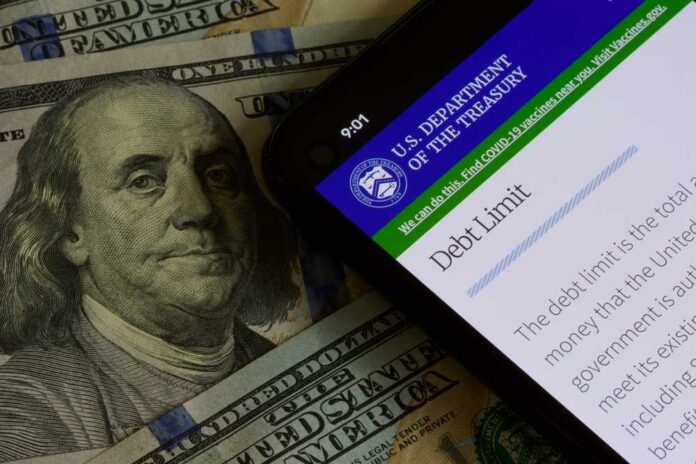
Republicans are preparing for a showdown with the Biden administration and Congressional Democrats over increasing the federal government’s current $31.4 trillion debt limit. If a resolution is not reached, the U.S. could default on debt payments and other obligations later in the year.
Treasury Secretary Janet Yellen announced last Friday that the government would reach the debt limit on Thursday, January 19. She warned that unless the ceiling has been raised by that time, the Treasury will need to implement accounting techniques she described as “extraordinary measures.” Those modifications would only allow obligation payments to continue until around early June.
Conservative House Republicans put the impending debt ceiling crisis at the center of negotiations earlier this month related to the election of new Speaker Kevin McCarthy (R-CA). House Freedom Caucus members especially insist that the party obtain significant cuts in federal spending in exchange for an agreement to increase the debt limit.
Over the weekend, Reps. John Garamendi (D-CA) and Tony Gonzales (R-TX) appeared on “Fox News Sunday” and discussed the upcoming negotiations. Gonzales told host Shannon Bream, “The debt ceiling is no doubt going to be a knife fight and that’s why we have to start early.”
Garamendi signaled the Democratic response, saying: “Republicans should learn from their own history, that using the debt limit as a lever to gain some sort of political advantage for some policy change really doesn’t work well for them and is terrible for the American economy.”
The California Democrat was referring to similar debt ceiling situations in 2011 and 2013. The 2011 negotiation resulted in the first downgrade of the U.S. credit rating in history. Standard & Poor’s dropped the national rating from AAA to AA+.
Further decreases in the credit rating could substantially increase the already enormous cost incurred to maintain interest payments on the national debt.
Biden keeps spending and raising our debt ceiling, calling Republicans who want to end this nonstop spending “fiscally demented.” Rich, coming from a guy who reportedly can’t pay his own taxes and whose son definitely did not pay his taxes. #corruptbidenshttps://t.co/iJgsLUY4gU
— Jeanine Pirro (@JudgeJeanine) January 17, 2023
In 2011, several GOP lawmakers agreed to raise the debt limit in exchange for “sequestration” of some federal spending. That involved automatic spending caps on discretionary spending but excluded mandatory obligations like Social Security and Medicare.
The automatic sequestration caps were raised in 2019 and allowed to expire after that. As a result, new sequestration caps are potentially back on the table for discussion this month.
Gonzales said on Sunday that his mindset is “no defense cuts without reforms,” because otherwise “the only thing that you’re going to do is hurt defense.”
On Sunday, Rep. James Comer (R-KY) said that spending cuts must be integral to upping the federal debt limit.
“We cannot continue to operate with these types of deficits. Our national debt is one of our biggest threats to our national security,” he said. Comer also warned that further growth in the national debt would allow China to increase its financial leverage globally against the U.S.
Comer added: “The Senate is going to have to recognize the fact that we’re not going to budge until we see meaningful reform with respect to spending.”














